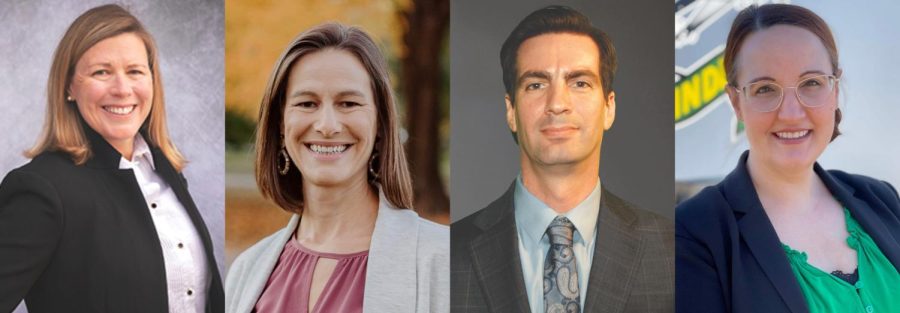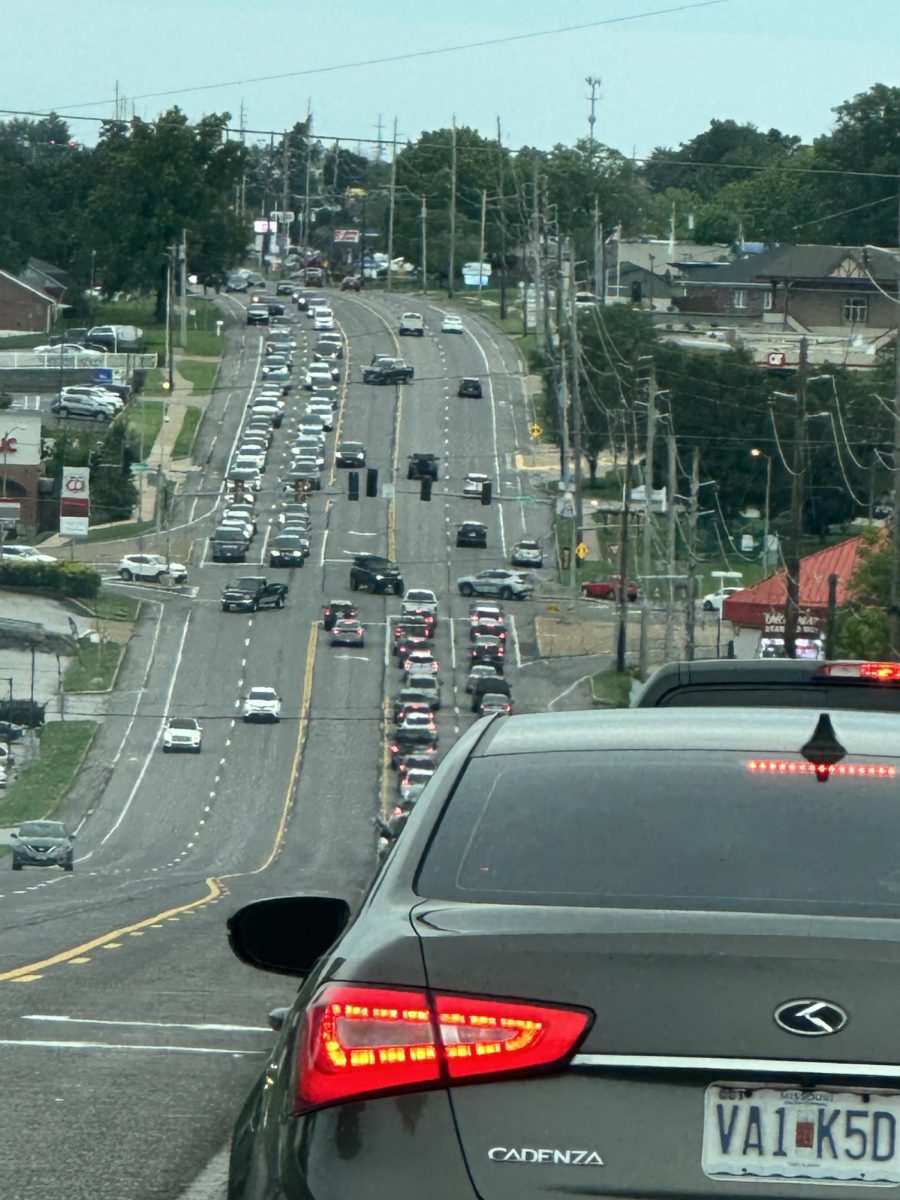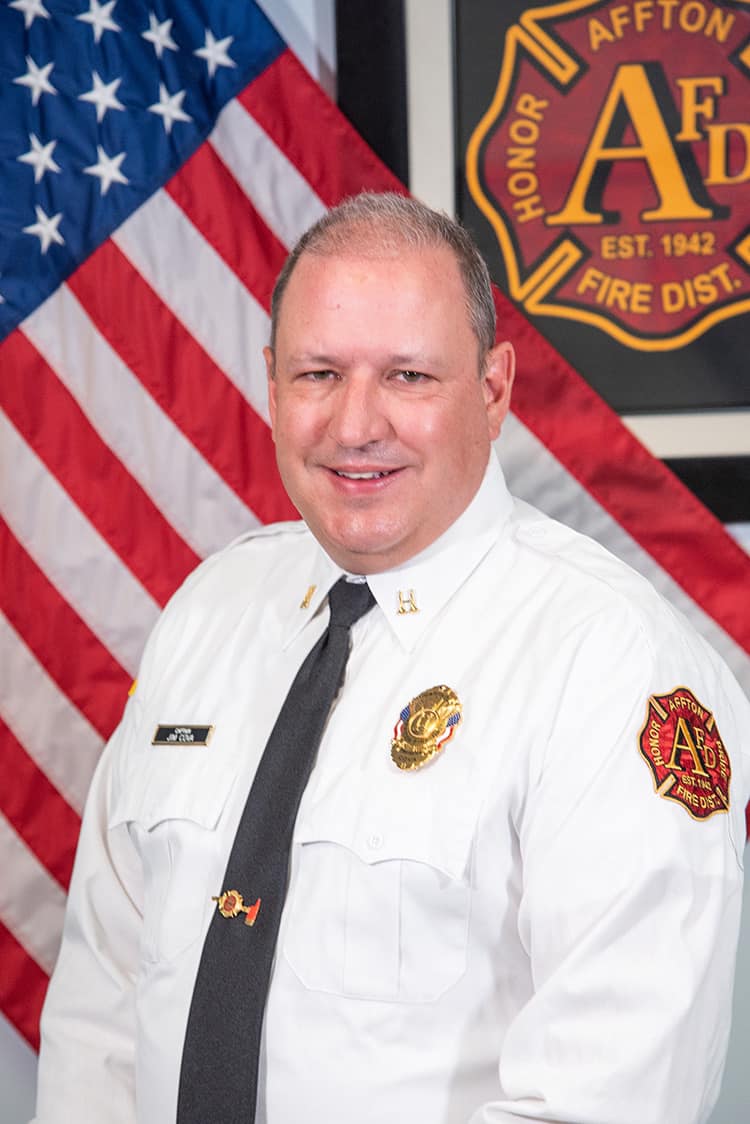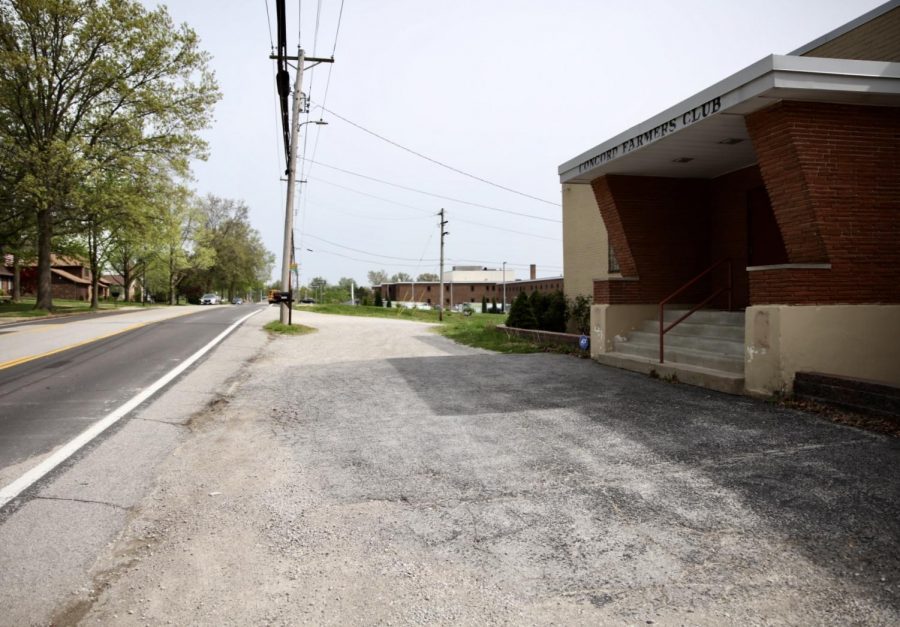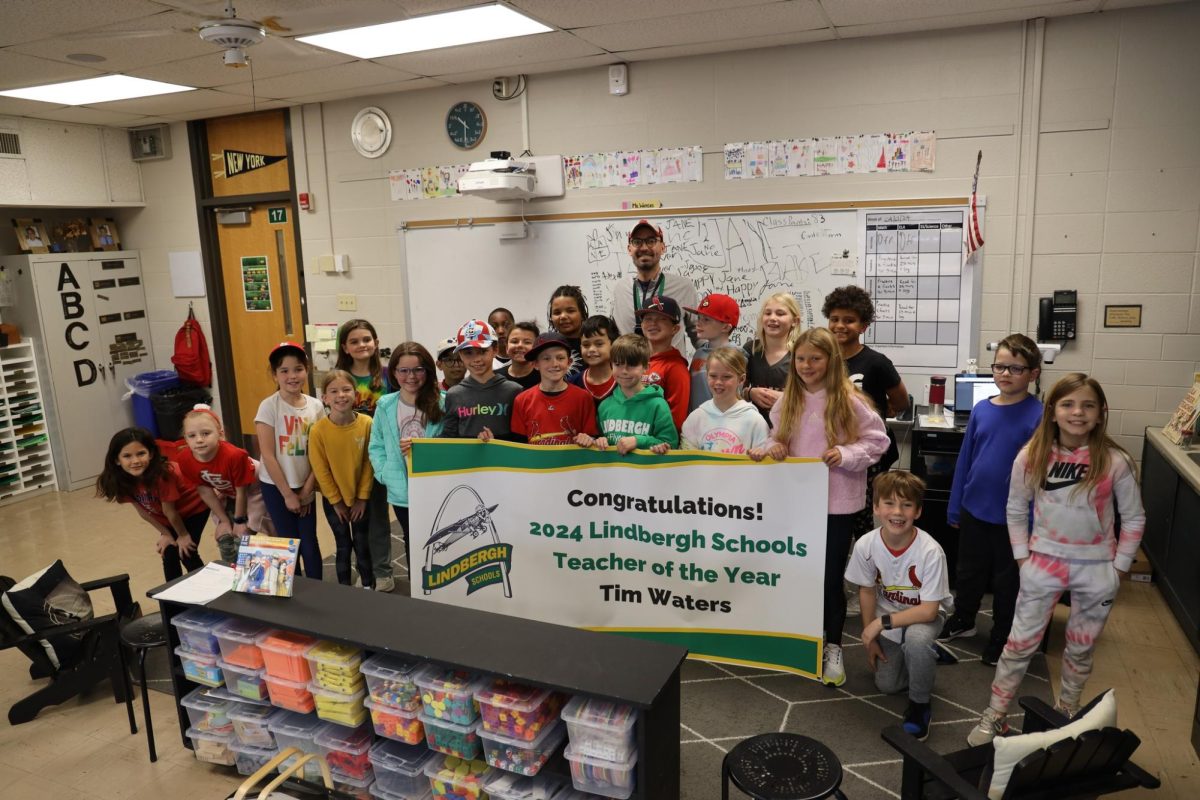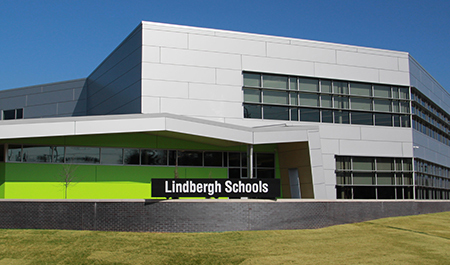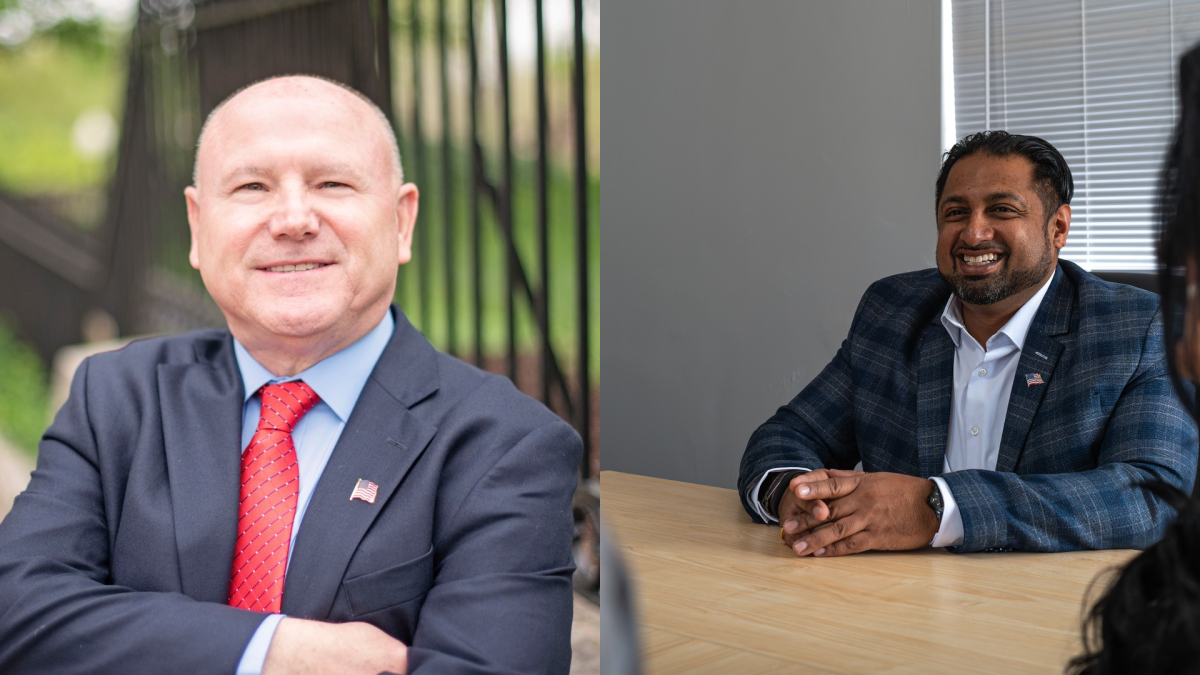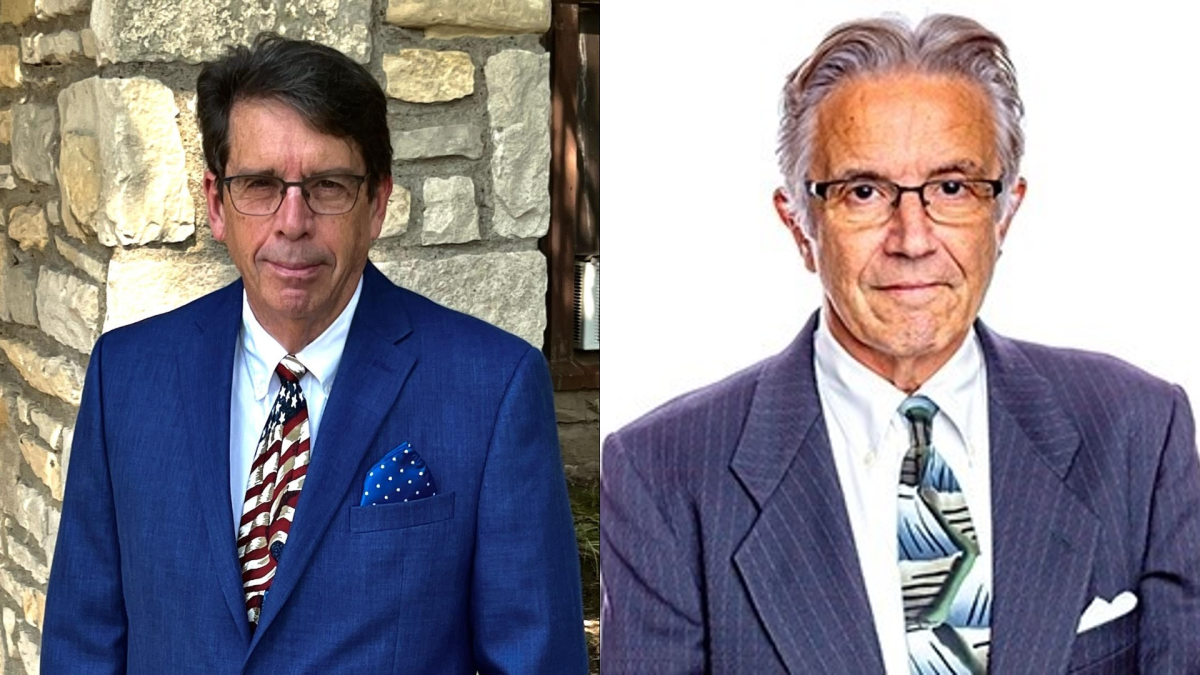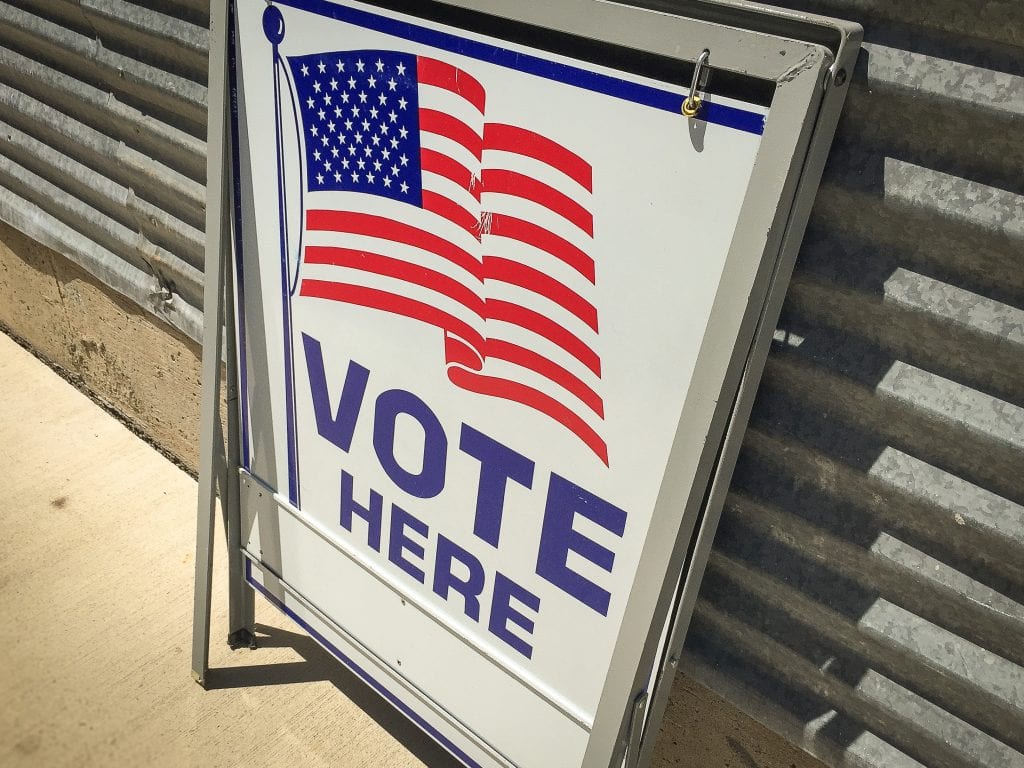Editor’s note: This is a developing article. Continue to check back to callnewspapers.com for more.
The race for the Lindbergh Board of Education features four candidates running for two open seats — Mike Tsichlis’, who is not seeking re-election because he is running for state representative, and Jennifer Miller’s. The municipal election is Tuesday, April 5.
The four candidates include newcomers Carrie Clay, David Randelman and Julia Voss, and incumbent Miller.
Carrie Clay is a stay-at-home mom to two children — one who attends Mary Institute and Saint Louis Country Day School and one at Churchill Center and School. She is a member of the Acme Erectors Board of Advisors and the Brand Asset Management Group Client Advisory Board.
When asked why she was running, Clay said, “To return academic excellence to Lindbergh Schools.”
Miller is running for her seat again after previously being elected in 2016. She has two children in the district and is a member of Special School District Governing Council … a Sperreng Middle School PTO Board member and a Concord Elementary PTG Board member.
When asked why she was seeking re-election, Miller said, “I want to ensure we continue to be a top district that focuses on rigorous instruction for all students, implement a strong literacy program, fiscal responsibility, open two-way communication with the community, oversight, safety and security and continued good relations with our teachers and staff.”
David Randelman is a cloud computing architect at RGA and is the father of four children in the district — two at Lindbergh High School and two at Concord Elementary. He is a nondenominational Christian and immigrant from Israel.
When asked why he is seeking office, Randelman said, “To give back to the community, promote excellence in education, bring a diverse immigrant perspective, community values and making sure we meet every student where they are at.”
Julia Voss is the director of litigation support and eDiscovery at Greensfelder, Hemker & Gale, P.C. She is the mom of three children in the district — one at Truman Middle and two at Sappington Elementary — and is a member of the Bar Association of Metropolitan St. Louis.
When asked why she is seeking office, Voss said, “To ensure the board is made up of individuals who do not have a personal agenda, but who instead will evaluate all issues thoroughly and with an aim to find the resolution that is best for the district.”
The candidates gave the following responses to The Call’s questionnaire:
What issue do you consider the single most important issue in this race and why?
Clay: Academic excellence is the most important issue in this race, as our district has seen a decline … to 76th in the state in 2021. The school district is the cornerstone of our community. It brings in new residents and businesses, drives new construction, significantly impacts our property values, and helps build a sense of community. … We must ensure our district stays strong and remains a destination district for academics.
Miller: I believe the most important issue in this race is the misunderstanding around the work Lindbergh is doing and the misrepresentation of our successes and challenges. This is also causing a divide in our community which must be addressed by better communication.
Randelman: Returning to our focus on academics and excellence. While our high school is still a top-ranked school, our elementary schools are suffering with 22 percent of students in the fourth grade failing math and a clear need to improve on literacy rates as well. This is the most important matter to address.
Voss: Ensuring that the district continues to prioritize academic growth … It is important to ensure that the district has the right resources and structures in place to help all kids succeed. Some voters are concerned that the MAP scores from 2021 indicate that the district is falling behind … The MAP scores were lower than prior years, but the department of education has explicitly stated that the MAP scores from 2021 should not be compared to scores obtained in other school years because every district faced a variety of challenges.
How did you vote in the April 2019 election on the district’s $105 million no-tax-rate-increase bond issue Proposition R?
Clay: I was a supporter of Prop R and volunteered to help get it passed.
Miller: I voted Yes on Prop R.
Randelman: I voted “no.”
Voss: I voted in favor of it.
Are you satisfied with the leadership of Superintendent Tony Lake?
Clay: Many in our district have great things to say. … I appreciate his efforts in improving teacher relationships … and working to be fiscally responsible. I believe it is hard for anyone on the “outside” to fully understand if he is being a good leader, so I will not make judgments until I get to work with Dr. Lake firsthand.
Miller: Yes. Dr. Lake is a leader who values building relationships with community members, parents and staff, seeking out input from these stakeholders … and ensuring academic excellence for all.
Randelman: I perceive that Dr. Lake has displayed great leadership in the last two years, especially when observing the Lindbergh Schools response to COVID. … There are some areas where I would like to see Dr. Lake improve on, especially when it comes to engagement with the community.
Voss: Yes. He repaired the administration’s relationship with teachers that the prior superintendent had broken. He seeks and gives back information to the community through Listen & Learn tours, senior breakfasts, and is generally available and responsive. He … is fiscally responsible.
What are your areas of concern regarding student achievement? Do you have suggestions for improvement?
Clay: I find it greatly concerning that only 41.5 percent and 55.2 percent of students who participated in state testing in 2021 were proficient in math and English language arts respectively. I would address this issue by advocating for the district to implement evidence-based structured curricula. … The district should also bring back the use of math specialists to provide better support for students who are struggling with math.
Miller: I want to ensure that each student is making measurable growth in all areas of their learning and is not being “taught to the test.” … The district needs to implement structured literacy and ensure all curriculum is aligned with priority standards and that those standards are being met district-wide. Including Tier 3 math intervention offerings will also help.
Randelman: I consider Lindbergh Schools to be a high achievement district for students. I am happy to see programs like CAPs being part of our district participation and hope to continue giving our students tools for fast career growth and achievements.
Voss: I am concerned with elementary reading. Since reading is the foundation of most learning, it is important to get this right. The new curriculum should contain more phonics and be a more comprehensive program. … I also think the middle schoolers may need more general “study skills” taught to them. I’ve heard a few students say they didn’t feel prepared for the rigor of high school.
Have you been endorsed by any groups, organizations, unions, et cetera? If so, please list them.
Clay: No. I believe students should come before special interest groups.
Miller: I have been endorsed by Lindbergh National Education Association, the South County Labor Union, and the Lindbergh Equity and Diversity Coalition.
Randelman: I have been endorsed by a sitting Lindbergh Schools Board Director, Mike Tsichilis, and by the group “Lindbergh: Leaders in Literacy”.
Voss: The Lindbergh teachers’ association, South County Labor, Crestwood Mayor Grant Mabie, the Lindbergh Equity and Diversity Coalition (LEAD) and Missouri Sen. Doug Beck, D-Affton.
What do you think of the recent effort to ban or restrict certain books from school libraries?
Clay: Generally, I do not support removing books from the school libraries, but I do think the district needs to provide tools to better help parents identify books they may not feel comfortable allowing their children to read. I support the direction that the district is heading with its proposed new library policy of labeling books deemed to have mature content to better assist parents in deciding if they want their children to read those particular books or not.
Miller: I am glad we have a process for families to challenge materials they have concerns about and I support the right of families to restrict access to certain materials for their child(ren). In general, I am not in favor of removing texts from our libraries and support the rights of students and families to have access to a wide variety of books.
Randelman: I don’t believe there was ever any efforts to ban. Rather, parents who discovered that there were pornographic books in the library asked for boundaries to be put in place. … The board approved policy of reviewing concerning books … assessed the books with the option to remove if deemed not age appropriate. No books were ever removed by those committees.
Voss: I do not approve of the effort to ban multiple books. I do support a parent’s decision not to let their own child read a book, but I do not believe that parent has the right to restrict access for all students. Nonetheless, each book must be evaluated on its own merit according to board policies … I would follow the policy, despite my personal feelings against censorship.
What are the biggest challenges — short-term and long-term — facing Lindbergh Schools?
Miller: Lindbergh will always need to stay on top of looking forward in order to minimize challenges. We need to be able to address upcoming infrastructure needs, continued growing enrollment, and prepare students for a future that is much different than what we were educated for years ago while also ensuring local control of public education. Lindbergh needs to implement new instructional resources and curriculums, such as reading and writing, on multiple levels and take the time to assess that these are working.
Clay: In my opinion, the biggest challenge facing our district is ensuring that all children receive a quality education that includes a solid foundation in reading, writing and math. When the district is not meeting the needs of all children in these areas it also becomes an equity issue. Children who come from families that are able to afford private tutors or have family members at home to support their studies are better able to acquire these skills and gain a significant advantage over children who do not have these resources. When elected to the board, I will work swiftly to get solutions implemented to improve learning and to implement a long-term plan for continued student success into the future.
Randelman: Our elementary schools are showing indications that literacy and math need a true and honest review to determine how we can support students and teachers with better programs. I believe the most urgent challenge in both the short and long term is dealing with our academic benchmark concerns.
Voss: Short-term: helping students emerge from the pandemic and ensure that they are at grade level over the next year or so. Long-term: Lindbergh is a destination district with continued growth projected. We need to make sure that as growth occurs, we are best utilizing our space and not allowing class sizes to creep up.
Do you support Lindbergh’s Strategic Plan? How is the district doing in following the plan? Should the district follow the strategic plan in the future?
Miller: Yes, I support the strategic plan and advocated for one to be created. Lindbergh is doing very well with following the plan and gives quarterly updates to the public regarding the strategic plan through board workshops.
Clay: Yes, I think having a strategic plan is very good. I think the district is doing a good job of following it, and should continue to use this tool in the future. I think the plan should include more details and data driven solutions for academic issues going forward.
Randelman: The five-year strategic goal (2019-2024) is a good, high-level strategic plan for our school. I see many good things in the plan, for example, the plan promotes personal academic growth as a primary mission. The plan also outlines the need for improved facilities, which is getting addressed with the new high school. I do hope to see us truly follow the plan with its given priorities, from academics (to) its communication and transparency initiative.
Voss: Lindbergh’s strategic plan is focused on setting up every child for success, so I do support it. It considers the needs of the students, the teachers, and the community. The 2021-2022 District Goals Report shows that there has been a lot of progress made by listing out district goals for each area of focus. Most goals are in the “implement” phase, which is appropriate for being halfway through the five-year plan. The district should continue to move forward with these goals.
How do you feel about charter schools?
Miller: Charter schools should be held to the same accountability standards as all public schools. They can be a good option for some families, but I feel the traditional public school education model provides more accountability and is able to meet the needs of a variety of students.
Clay: We need to make our district the best it can be, so that parents do not feel the need to seek other educational options for their children.
Randelman: My view is that charter schools are not needed in the Lindbergh Schoos district; I generally feel that charter schools should only be allowed to establish in a failing public school district, which is not the case at all here.
Voss: I do not support them. Most come and go over a short period of time because they simply cannot compete with the public school system. A non-partisan study out of Stanford showed that 83 percent of charter schools performed either the same or worse than public schools. Charter schools do not have the infrastructure set up to help kids in special education or who have nontypical learning styles. They do not have the resources to have robust extracurriculars. They are not overseen by an elected board and they do not invoke the same kind of pride from the community as a public school. We should be investing in public institutions that form the basis of a community, like Lindbergh, not in transitory schools that won’t be around in a few years.
What concerns do you have, if any, about the impact of the Crestwood Crossing development on the district? The development includes the construction of an 81-home subdivision.
Miller: I do not have concerns at this time. Lindbergh will need to develop a plan for the influx of students that will enter the district when the subdivision is built. This may require an addition to an elementary building and/or redistricting in order to keep building enrollment and classrooms at the appropriate size. I am confident the district will plan ahead before this occurs so there are no issues when the subdivision is built.
Clay: We are lucky that our current buildings have room to accommodate the projected growth of our district. Redistricting may be required, but construction of new learning space to accommodate this growth should not be required.
Randelman: I have studied the school capacity and don’t see an issue of having this development happen in our district. Furthermore, I believe it would likely bring young families to our district and I see that as a welcomed opportunity for families who are just getting started.
Voss: The development will help the district. The homes are outside the tax increment financing area, so any houses that are built will pay taxes to the Lindbergh district. This is not a situation where additional children will be entering the district with no increase in tax revenue. In addition, the surrounding area real estate outside the TIF area will increase in value with the development of the site, thus further increasing revenue to Lindbergh. The only concern I have is whether an increase in enrollment at Crestwood Elementary would jeopardize class sizes. If it does, the district may need to reallocate resources to keep Crestwood balanced.
Lindbergh residents showed overwhelming support for the district in voting for Proposition R. What will you do as a board member to maintain that goodwill between the district and the community?
Clay: We must be fiscally responsible with taxpayer dollars to continue to garner voter support for district initiatives. This includes, keeping the quality of academics high, keeping debt low, taxes reasonable and being financially transparent.
Miller: Communication and transparency are key in maintaining goodwill between the district and the community. I will ensure that both communication and transparency continue to be priorities for the district and also make myself available for conversations with community members on an ongoing basis.
Randelman: When I first researched Prop R, I considered it to be over-budgeted. In time, as I learned of all the needs in safety and infrastructure, I changed my perspective. The community supports Lindbergh Schools and the excellence that it has been in academics and supporting our students. In order to continue the good will between the district and community we need to keep Lindbergh a welcoming place for all students, as it has been.
Voss: I will encourage the board to find a way to give the community more opportunities for two-way communication. Board meetings are not set up for that, and I believe the community wants a little more interaction with the board.
Do you support the district’s decision to offer 1:1 technology/laptops?
Clay: Given that we are living in a pandemic, and schools may quickly have to go to virtual learning, I support the district offering 1:1 technology/laptops.
Miller: Yes. Technology is embedded in our students’ lives, inside and outside of school. It is necessary to be proficient in technology to prepare for the future and allowing all students access to technology ensures every student is able to complete schoolwork without relying on outside sources.
Randelman: As an IT professional I know the importance of technology and the integral part it plays in learning and education. COVID-19 and the exclusive use of 1:1 devices has shown me as a parent that some children may become recluse or isolated from a healthy learning environment. I would like to see a balanced learning environment where some classes promote the use of laptops while others leverage more traditional methods of learning.
Voss: Yes. It’s important for the same technology to be available to all students.
What lessons do you think the district should take away from the process of the past two years, with COVID, transitioning from closed schools and remote learning to alternative options and towards a return to some normalcy?
Clay: I believe it is the best interest of students academically, socially, and emotionally, to attend in person school. We must make every effort possible to keep students in the classroom.
Miller: Lindbergh should use this experience to learn how to quickly develop and implement plans that are meaningful for students. This gave Lindbergh the opportunity to think outside the box, create multiple different means of educating students while keeping educational priorities at the forefront. COVID has highlighted the value of and need for daily student-teacher interactions, relationship building and in-person learning.
Randelman: Given that knowledge at the time, Lindbergh Schools handled the situation well. I believe we can learn from the effectiveness of in-person learning versus remote learning through the data for future consideration when called upon.
Voss: The main takeaway from COVID is that there are many types of learners. There are some kids for whom the virtual classes were a welcome change. The district should consider what virtual options or hybrid virtual/in-person options exist for these students. But I think most students need in person.
Are you satisfied with the district’s security efforts?
Clay: Security and safety of students and staff is of utmost importance. The district has made strides in this area, by adding secure entry vestibules to buildings that did not have them and hiring a Safety and Security. I think we can always work to improve this area and should regularly be consulting with other districts and staying up on the latest school security measures.
Miller: Yes. The hiring of a district safety and security coordinator has allowed the district to develop numerous procedures and plans to address any potential security concerns. Recently, Lindbergh has installed safe and secure entrances at all of our school buildings and the renovated high school will have a single, safe and secure entrance.
Randelman: Yes. I am also aware of the large emphasis of safety efforts done by the district through Prop R to modernize and bring our safety to new levels in the coming months and years.
Voss: The district has updated all the buildings to have secure entryways, which is great. With those needed improvements, I believe the biggest fear is that there will be a student already inside the building who is violent. To help avoid that scenario, the district should ensure that its disciplinary procedures are not just doling out punishment. There should be a rehabilitative component as well so that students are learning to deal with strong feelings that lead to acting out, especially at the elementary and middle school ages. There should be enough counselors and/or social workers who can step in to help a child if necessary. I also agree with having a resource officer in the middle schools and high schools. Police presence can help dissuade violence and can also help students develop a good relationship with law enforcement.
What do you believe is the biggest challenge facing teachers?
Clay: Teachers are being asked to juggle too many things and do not always receive the support they need from administration. We need to reduce the amount of extra tasks placed on teachers, so they can focus on teachers, and we need to get teacher input to improve the support they receive from administrators.
Miller: Teachers are constantly learning and adjusting their teaching to ensure student academic needs are met. They are constantly faced with questioning of their intentions, legislation that restricts their profession and attacks on their retirement fund. Lindbergh must continue to value their teachers, allow them to do the work they are trained to do and treat them as the professionals they are.
Randelman: Teachers need a well-structured lesson plan and support around the new curriculum. I also believe it is important to make sure teachers have adequate time to prepare for lessons and IEP’s.
Voss: There are two concerns I have for the teachers. First, I think it is going to be a difficult year or two as they assess whether students are suffering from academic learning loss and/or emotional distress resulting from the instability of life during the pandemic. Second, there are bills currently in legislation that would control what a teacher can and cannot teach. One of them even allows a teacher to be sued if they teach public policy (which is not defined in the bill) without consent. These bills would make it very difficult to teach and could lead teachers to leave the profession.
Should the board rely on the advice and recommendations of the financial professionals of the district’s Finance Committee to make major financial decisions, including whether to approve salary increases and budgets?
Clay: The board should take the input of the committee, but board members should also do their own research and draw their own conclusions.
Miller: The purpose of the Finance Committee is to provide oversight to financial decisions of the district. The Board should always take their feedback, perspective and professional experience into consideration when looking at financial decisions.
Randelman: The natural answer to this is yes, while also maintaining an eye towards our fiscal responsibilities and maintaining our reserves.
Voss: The board should take into account all recommendations made by any committee, but at the end of the day, it is the board’s decision what course of action to take on any given issue.
What is your position on tax-increment financing, or TIF, and what it means for the district?
Clay: I am not in favor of residential TIFs, due to the extreme loss of tax dollars to the school district. For commercial developments the newer and better alternative is to use a community improvement district, in which there is no tax loss to the district, while still encouraging development, which results in more tax revenue to the school district. A community improvement district was just recently used to bring Bass Pro Shops to Sunset Hills.
Miller: TIF can accelerate economic growth. It can be beneficial to communities when it is unlikely development will occur without a TIF. I do not believe TIF should economically impact existing businesses and the school district.
Randelman: I am very cautious regarding TIF, there is a risk that commercial projects within the district could divert many millions of dollars of school tax revenue to subsidize the project.
Voss: I think TIFs are necessary sometimes to encourage development in a difficult area (like the Crestwood mall site). However, they should only be granted when there is a compelling community interest. If they are granted too easily, they just take tax dollars away from the schools.
Should the district deficit-spend for recurring expenses like salary increases?
Clay: No, we should work toward a budget that is self-sustaining.
Miller: No. Deficit spending should only be used for one-time expenses
Randelman: No.
Voss: Ideally, no. But I would hesitate to say never. District revenue varies year to year, and if there is a year that is a little off the assumptions made for the year, it might be necessary. Moreover, the local tax revenue does not get disbursed to the district until December/January, so the first half of the school year will always look like the district is deficit spending until that money comes in.
If future budget cuts are needed, what do you propose eliminating from the budget? Would you support reducing busing and/or charging for it?
Clay: The board must consult with stakeholders to determine which areas would be least impactful to make budget cuts. If stakeholders indicated that they wanted to reduce busing or charge for it, I would consider the option.
Miller: I do not support further reducing busing or charging for it at this time. I believe the use of zero-based budgeting should be used each fiscal year to ensure no funds are misspent. This has and will continue to be the best way to find monies in order to fund necessary expenditures. The Finance Board Advisory Committee can also be used to make budget recommendations if cuts are ever needed.
Randelman: If such a situation arises my priority would be first to maintain the quality of education for the students. Lower priority programs would have to be re-evaluated. Concerning busing, I would look to aggregate routes if we must, but I would certainly not want to charge, it is important to make sure all students have safe passage to their school.
Voss: I would try to cut a little from multiple places rather than completely eliminate an entire area. I could see maybe enlarging the area close to the school where kids are required to walk for middle and high school if it creates meaningful savings, but I would not support charging for buses or in forcing elementary children to walk further. Public education should be free to all, and it cannot be if kids cannot get to school. A move like this would disproportionally affect children in poorer homes. I would be open to considering other methods of getting kids to school – like using vans for smaller groups of children if it was feasible and cheaper.

















